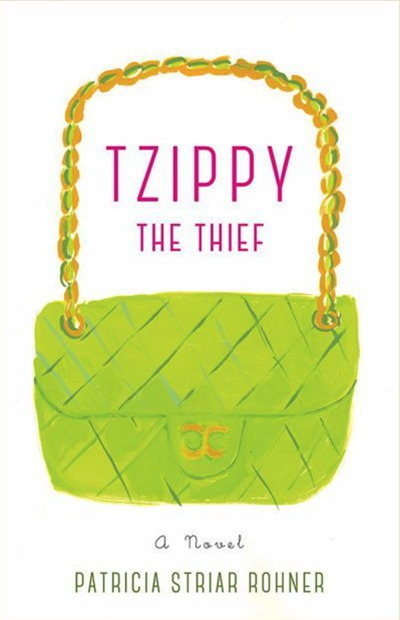 Tzippy the Thief
Tzippy the Thief
In Patricia Rohner's entertaining novel Tzippy the Thief, Tzippy Breyer is a wealthy Jewish widow fast approaching her 80th birthday. She has a condo in Florida, a devoted male companion with whom she enjoys an active sex life, three adult children, a live-in maid, and—wait for it—a serious addiction to shoplifting. A series of minor catastrophes, including her arrest for stealing an expensive piece of jewelry and a bitter family argument at her pre-birthday dinner, launch Tzippy into an emotional crisis centered around her troubled relationship with her daughter Shari. Thus begins a period of self-exploration that propels the plot into a serious yet humorous journey into family healing.
One of the questions I ask myself during the judging process is whether or not I would continue reading the book if I had checked it out of the library. The answer here is a definite yes! Tzippy the Thief was one of the most enjoyable books to read for this year's contest. It's the perfect book to read poolside while on vacation. It can be described as a coming-of-age novel about an 80-year-old woman! I might not have accepted the premise of the story—the deeply transformative emotional growth of a very shallow aging woman—if I hadn't witnessed a close family member undergo the same kind of healing process as he approached his 80th birthday.
Tzippy is a seriously flawed character. She steals, she takes her African-American maid for granted, she obsesses over designer clothes and hair styles. Deep down, she knows she wasn't a very attentive mother. A large part of her coming-of-age project is to make amends with her daughter Shari, who has a history of alcoholism and anorexia. Tzippy seeks counseling with an eating disorders expert and eventually convinces Shari to join a support group with her. Along the way, Tzippy confronts racism in terms of her relationship with her maid as well as her own internalized classism and anti-Semitism.
Although the title of this novel is evocative, it foreshadows Tzippy's shoplifting incident, a plot twist that might have been more effective if it had come as a surprise. The writer's skill with dialogue and character portrayal made Tzippy's emotional transformation feel believable.
However, it felt to me as if Tzippy's growth took place in too fast a time frame; too many social issues were wrapped up too quickly. Tzippy's complex love-hate relationship with her maid Angie was fraught with class and racial issues and in my opinion was resolved at the end too easily. It was somewhat problematic, as a "happy ending", for Tzippy to buy out Angie's favorite boutique for Shari to manage, as she didn't seem likely to continue the store's focus on plus-size African-American women. While such sidelining of her black caregiver is certainly in character for a woman steeped in white privilege, some internal resentment on Angie's part would have clarified the novel's critique of race relations. Like Tzippy, many readers are unconsciously trained to think of white people as important characters and minorities as happy sidekicks.
The judges also wondered whether it would be ethical in real life for the family lawyer to date Tzippy's daughter. It didn't seem plausible that none of the characters were concerned about this.
I appreciate that the book was virtually error-free in terms of grammar and spelling. The pacing was wonderful, forcing me to turn the page, although a few shopping scenes could easily have been condensed. At times the counseling scenes were a bit repetitive but that is a small complaint. It's about time for a very old woman to be the hero of a novel. I believe the writer deserves a wider audience and hope that she seeks an agent for her next book.
The book is aesthetically pleasing and easy to hold and read. Tzippy herself would agree that the designer handbag on the cover was the perfect image!









